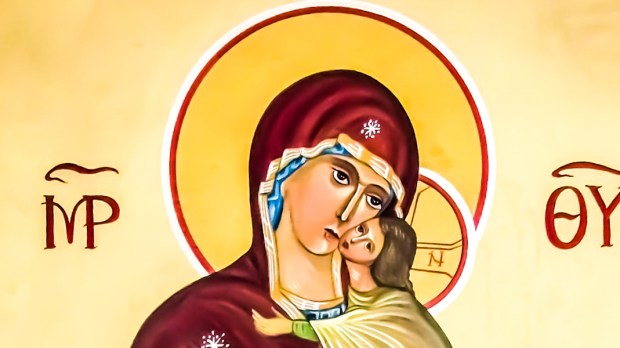Recently the Sheikh Muhammad bin Zayed mosque in Abu Dhabi received a new name, which has gotten wide coverage in the media. It is now the Mosque of Maryam (Mary) the Mother of Jesus. This gracious gesture of Sheikh Muhammad ibn Zayed al-Nahyan deserves to be gratefully received and properly understood.
Mary, the mother of Jesus, plays important but different roles in Islam and in Christianity, and it is important for Christians and Muslims to understand what that means and what it does not mean. In one sense Mary can be looked upon like English in the expression “England and the US are two countries divided by the same language.”
It is true that there is material in the Qur’an about Mary which closely echoes what we find in the Gospels. It is, however, also true that the figures of Mary in the Qur’an and the New Testament are very different. If Mary is the Mother of Jesus, a prophet, in the Qur’an, she is the Mother of Jesus, who is the incarnate Lord, in the New Testament. In both religions the figure of Mary is intimately connected to that of her son Jesus. How Jesus is understood in the traditions profoundly impacts upon how Mary is understood. Christian Trinitarian belief in the humanity and divinity of Jesus is totally rejected in the Qur’an and Islam. As a result the figure and role of Mary in both religions must necessarily be different.
This in no way lessens the importance of Sheikh Muhammad bin Zayed’s gesture or lessens the role of Mary in Christian-Muslim relations. However, it does put it in a proper and more realistic context. For Christians to expect too much of the role of Mary in Islam can lead to disappointment. To expect too little of it is, tragically, to underestimate the role Mary plays in the spiritual life of Muslims.
Taking into account both the differences and similarities in the role of Mary in Christianity and Islam, the Mother of Jesus, nevertheless, plays an important role in the Christian-Muslim dialogue: she is the one who hears the word of God, believes it and heroically puts it into practice her life.
With that in mind, here are five things to know about Mary and Muslims:
- Mary is one of the two most important women in Islam. Fatimah, the daughter of the Prophet and wife of Ali ibn Abi Talib, is probably the most important female figure in the Islamic consciousness. Fatimah is given the title “al-Zahrā,” the illustrious. Mary, however, is the dominant female figure in the Qur’an.
- The content of the Surat Maryam, “The Chapter on Mary,” forms the 19th Chapter of the Qur’an. In this chapter there is an account of an annunciation to Mary (vs. 18-23). There are points of similarity with the Lukan annunciation narrative: an angel is sent by God to Mary to announce that she will have a son, and she responds in the same way as she does in Luke’s Gospel.
- While the son of Mary in the Qur’an is most definitely not divine, the Qur’an stresses that he was conceived without human agency (vs. 21-22) and that his mother remained a virgin (21:92 and 66:13). In 21:92 we read “And remember her who preserved her virginity; so we {i.e. God} breathed into her of our word and we made her and her son a Sign for the peoples.”
- When some of the early Muslims fled persecution in Mecca in 615, they fled to the king (negus) of Abyssinia (modern Ethiopia), which was a Christian kingdom. When the king asked them for an account of this new faith (Islam), Ja’far ibn Abi Talib recited Qur’an 19:16-21 about Mary. The king recognized that it was similar to Christianity and offered the Muslims asylum.
- In several places in the Middle East—Lebanon and Ephesus, Turkey— Christian shrines to Mary are often frequented by Muslim pilgrims. Although this is severely frowned upon by the salafi/Wahhabi strain of Sunni Islam, which is the official form of Islam in Saudi Arabia, the practice does not seem to have abated, especially in places where it has deep and ancient roots.

